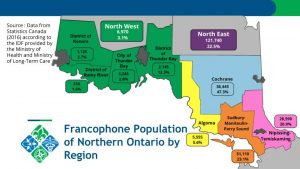Due to ongoing restrictions on mass gatherings in response to the COVID-19 pandemic, NOSM’s Board of Directors and Annual Meeting of Members was held virtually on Wednesday, September 30, 2020.
Juliette Denis, Métis Elder and board member, opened the meeting with a reflection and prayer in recognition of “Orange Shirt Day” providing guidance and inspiration to the meeting.
The Board announced the addition of six Directors: Craig Abotossaway, Virginia May (Mae) Katt, Suzanne LeBeau, Mark Hartman, Dr. Shemer Ratner and John Stenger.
- Craig Abotossaway has more than 25 years of experience working on a variety of First Nations health initiatives. As a former elected Chief of his First Nations community of Aundeck Omni Kaning, Abotossaway brings extensive political knowledge of both the provincial and federal levels of government and health issues facing First Nations people, both regionally and nationally.
- Mark Hartman has worked as a radiation therapist, Director of the Cancer Centre capital expansion project, and Administrative Director of the Regional Cancer Program. In 2018, he was appointed to the role of Senior Vice President, Patient Experience and Digital Transformation at Health Sciences North.
- Suzanne LeBeau is the CEO of Red Lake Margaret Cochenour Memorial Hospital, where she brings a variety of hospital, community and education sector experience to the role.
- Virginia May (Mae) Katt is Ojibway from Temagami First Nation. She is a Nurse Practitioner with diverse experience in mental health and substance use, adolescent health, maternal and child health and community health.
- Dr. Shemer Ratner is a Nephrologist and Internist in the Nephrology Department at Health Sciences North who serves the Northeastern Ontario region. Ratner brings his medical expertise and years of postsecondary education that has taken him all over the world, including to parts of Africa, Europe, Asia, United States and South America.
- John Stenger is a seasoned financial professional with a strong financial background and over 30 years of experience in health care, private enterprise and business and economic development, residing in Elliot Lake.
While the Board saw the introduction of new members, it also thanked several dedicated Directors whose terms were completed; Gary Boissoneau, Ken Boshcoff, Pierre Dumais, George Payne and Lori Flinders were recognized for their contributions and service.
“We are grateful to the outgoing members for the passion and dedication they brought to their roles,” says Dr. Robert Haché, Chair. “Each has made valuable contributions to NOSM’s corporate governance and we acknowledge the time, effort and commitment that they so generously put forward.”
In recognition of service, the Board approved the creation of a Board of Directors Leadership Award. The award will honour a fourth-year student in the MD program who fosters social accountability and demonstrates excellence in leadership by engaging and guiding others in promoting emerging healthcare professionals and living NOSM’s vision, mission, values.
The Governance Committee presented a new Naming Opportunity Policy for approval. This policy will guide NOSM in recognizing donors and other partners whose philanthropic contributions to the School have helped advanced its strategic mandate.
The audited financial statements for the year ending April 30, 2020 and the auditors for the fiscal year ending April 30, 2021 were approved.
Dr. Sarita Verma, Dean, President and CEO, presented NOSM’s 2021-2025 Strategic Plan. The NOSM Challenge 2025 is the third strategic plan in the School’s fifteen-year history and is grounded in input from nearly 2,000 stakeholders including learners, staff, faculty, partner organizations, and community members from across Northern Ontario. The Board of Directors unanimously approved the NOSM Challenge 2025 Strategic Plan with a new overall mission: To improve the health of Northern Ontarians by being socially accountable in our education and research programs and advocating for health equity.
The Board congratulated Dr. Verma on a remarkable first year as Dean, President and CEO. “The Board is extremely pleased with Dr. Sarita Verma’s work and commitment since becoming Dean, President and CEO of the Northern Ontario School of Medicine,” says Dr. Moira McPherson, Vice Chair. “She has positioned NOSM to withstand challenges and enable key growth in many areas. We congratulate Dr. Verma on a commendable first year at the School and an exciting new chapter for NOSM.”
The next meeting of the Board of Directors is scheduled for Wednesday, December 2, 2020.
For a complete list of Board members, please visit our website at nosm.ca/board.


 The Franco-Ontarian flag consists of two vertical bands. The first band is green with a white fleur-de-lis (lily), which represents the French-speaking community worldwide. The second band is white with a green trillium, the provincial flower of Ontario. Green was chosen by the designers to evoke summer, while the use of white brings to mind winter. Together, the two colours represent the two poles of Ontario’s climate.
The Franco-Ontarian flag consists of two vertical bands. The first band is green with a white fleur-de-lis (lily), which represents the French-speaking community worldwide. The second band is white with a green trillium, the provincial flower of Ontario. Green was chosen by the designers to evoke summer, while the use of white brings to mind winter. Together, the two colours represent the two poles of Ontario’s climate.

